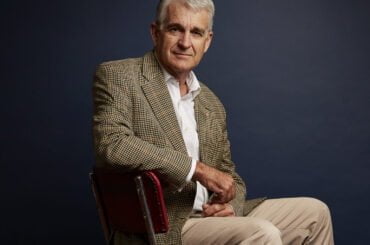
Labor’s climate of catastrophe
Thirty years after the advent of climate change policy we have barely begun to grasp the scale of the challenge.
Polling shows Australians are committed to playing their part in the global effort to eliminate greenhouse emissions.
Yet they have been grievously misled about the cost and complexity of the task, further wearing the bonds of trust between the political class and the people.
At the heart of the problem is a failure to be honest about the reality that carbon abatement is expensive and involves economic transformation unparalleled in our lifetimes. It demands exceptional skill from those responsible for setting government policy.
The experience of the past decade, with endless changes of prime minister and loss of confidence in government, hardly fills Australians with confidence.
The sobering reality is the debate has become so emotionally charged that the careful, rational processes that good government demands seem more remote than ever. It is quite within the realms of possibility that we will manage a dreadful trifecta of own goals: considerable economic carnage, a crippling social divide of the sort we observe in Brexit and in Donald Trump’s America, and the ultimate irony — increased rather than decreased global emissions.
Contrary to popular perception, Australia, responsible for only 1.15 per cent of global emissions, is no laggard when it comes to greenhouse gas mitigation.
The latest departmental update shows we will exceed our 2020 commitment by 367 million tonnes. The carbon footprint of the average Australian has sunk to the lowest level since 1990.
Despite this, for the simple reason that Australia’s contribution to global emissions is tiny, our contribution to the global task is modest.
Global emissions continue to grow at about 2 per cent a year. Some 259 gigawatts of coal-fired power reportedly is being built in China, more than 50 times the capacity of Australia’s total grid.
While Australia continues to reach its national targets, the real measure of success is not the size of Australia’s carbon footprint but the level of global emissions.
Ironically, a policy that is obsessively inward-looking can end up producing higher global emissions. Take the case of liquefied natural gas, an export market in which Australia leads the world. Australian LNG is reducing greenhouse emissions in China, South Korea, India, Japan and elsewhere by replacing older forms of generation.
Yet, perversely, the more LNG we export, the harder it becomes to meet our own targets since the cost of fugitive emissions and the energy used to compress the gas is taken on to our books.
The closure of alumina smelting in Australia would lead to net global gains in emissions. The smelters might move to China, for example, where emissions per tonne of alumina are approximately double those in Australia. Even the pro-environmental Australia Institute recognises the power-hungry aluminium industry produces net benefits.
Lightweight aluminium components in vehicles, for example, improve fuel efficiency.
Yet the end of alumina refining in Australia is just a poor policy decision away. The 45 per cent reductions target proposed by Labor, for example, would spell the death knell for domestic aluminium manufacturing. Almost certainly, the net result will be an increase in global emissions as the slack is taken up in other countries with lower efficiency standards and dirtier fuels.
Mature consideration of climate policy would start by recognising Australia’s relatively high per capita emissions are the product of a successful resource-exporting economy. Its corollary is that heavy-handed forced reduction of emissions will send the economy backwards.
Brian Fisher was respected by both sides of politics and industry during the 18 years he headed the Australian Bureau of Agricultural and Resource Economics. He was the trusted chief modeller of the economic impacts of climate change for the Hawke, Keating and Howard governments. His modelling of the policy scenarios before us simply cannot be dismissed, especially since it has been internationally peer reviewed (Stanford University’s professor John Weyant).
Furthermore, it is highly significant he was a convening lead author on two reports and a lead author on one for the Intergovernmental Panel on Climate Change. His report, published the other day, is sobering.
The marginal loss of gross domestic product growth that stems from the Coalition’s 27 per cent target is manageable but the loss of GDP growth that results from Labor’s 45 per cent emissions cuts is potentially very damaging indeed.
Without the carry-over of the Kyoto over-achievement credits, it would be catastrophic.
The contrast between the two parties’ climate policies ensures the election will indeed be the referendum on wages Bill Shorten has predicted, if not on his terms.
Fisher’s modelling predicts an 8 per cent reduction in wages by 2030 under a 45 per cent target and the loss of 336,000 jobs, assuming Labor allows for Kyoto carry-over. Were Labor to give way to the Greens and the Left of their own party and not allow the carry-over, the same modelling shows a dramatic further escalation in economic damage, with a $1.18 trillion reduction in GDP, average Australian wages to be $24,000 less than the base case, 580,000 fewer jobs and a 94 per cent increase in electricity prices.
At a time when trust for politicians is lowest, the climate debate will be a particular test of Shorten’s commitment to transparency and integrity.
The Australian people need to be able to make an informed decision about the climate policies before them before they can give informed consent. Only then will we be able to leave behind the fracturing of our politics and return to consistent, predictable policy implementation.
John Anderson was deputy prime minister from 1999 to 2005. His writing and interview series is at johnanderson.net.au
Originally published in The Australian
Original Article






